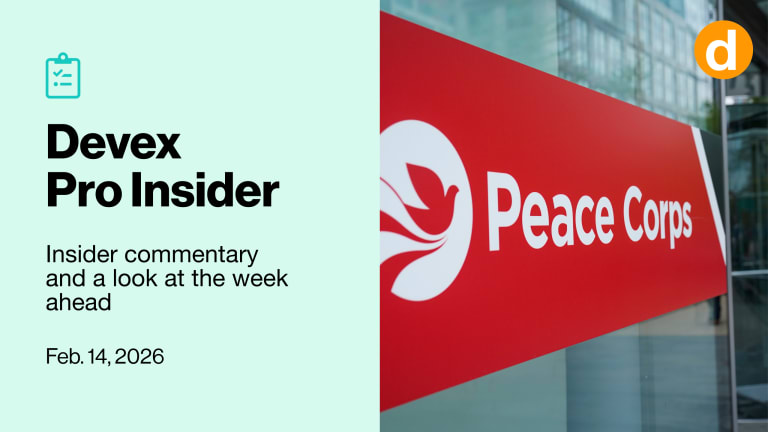
Bolivia’s decision to terminate all U.S. Agency for International Development activities in the country will shut down programs worth $27.6 million a year, but it is yet unclear if the projects could continue without the presence of American staff or how implementing partners will be affected.
USAID said on Wednesday that the forced pullout “will terminate programs that increase access to and quality of health care for poor Bolivians, conserve Bolivia’s rich biodiversity, reduce pollution around Lake Titicaca and promote economic growth and livelihoods.”
A total of nine Americans and 39 Bolivians are employed by USAID in the country. It is however unclear if the expulsion will cover local staff, who technically could continue the projects without expat supervision, and USAID did not clarify this when asked by Devex about this issue and other concerns. On the other hand, the U.S. aid agency could be liable to lawsuits by implementing partners if programs are not completed and contracts thus not honored.
USAID has spent nearly $2 billion on education, health, agriculture, food security, alternative development, economic development and environment programs in Bolivia since 1964, according to the agency’s fact sheet on the country.
For fiscal year 2014, the Obama administration has requested a preliminary estimate of $13.5 million for development aid programs in Bolivia, down 36 percent from 2013. Of the total, $7.5 million is earmarked for health-related projects.
Morales: USAID ‘meddling’ in internal affairs
“The United States government deeply regrets the Bolivian government’s decision to expel USAID. We deny the baseless allegations made by the Bolivian government,” said the USAID official statement following the expulsion order.
Bolivian President Evo Morales, a close ally of leftist South American leaders like the late Hugo Chavez in Venezuela and Fidel Castro in Cuba, earlier claimed that the U.S. aid agency had been allegedly meddling and conspiring against the government.
Morales did not specify the charges, but chided Washington for U.S. Secretary of State John Kerry’s recent remarks about Latin America being the United States’ “backyard.”
The Associated Press however reported that USAID in 2006 awarded $10.5 million for “democracy-building” efforts to Chemonics International throughout all Bolivia. That same year, a similar program was funding local NGOs working to overthrow the Chavez regime and defend U.S. interests in Venezuela, according to whistleblower site WikiLeaks.
Morales was elected president in January 2006 and renewed his mandate in 2009 with a landslide election victory.
Recent history of tensions
This is also not the first time that Bolivia threatens to expel USAID or kicks out other American agencies and officials. In August 2011, Devex reported that Morales had accused the U.S. aid agency of meddling in the country’s domestic affairs by inciting indigenous leaders to oppose the construction of a highway in a protected natural area.
A year earlier, the Bolivian region of Pando was declared “USAID-free” after a committee of local mayors found the organization guilty of political intervention in indigenous and rural communities.
Morales also ordered in 2008 the removal of then-U.S. Ambassador Philip Goldberg and officials from the U.S. Drug Enforcement Agency for allegedly “seeking the division of Bolivia” by targeting local coca plant growers as drug traffickers.
USAID was last driven from a country in September 2012 in Russia, where President Vladimir Putin is clamping down on pro-democracy groups and foreign-funded NGOs.
Read more on U.S. aid reform online, and subscribe to The Development Newswire to receive top international development headlines from the world’s leading donors, news sources and opinion leaders — emailed to you FREE every business day.








